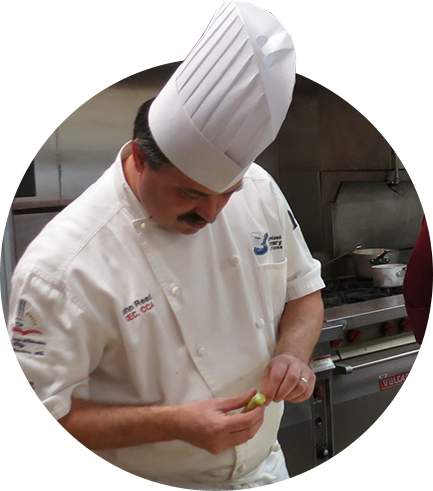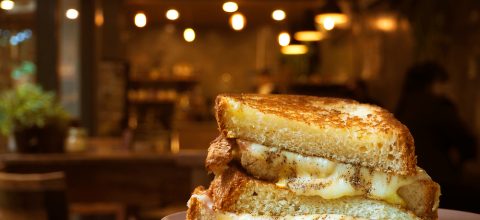I am a follower of Slow Food because I believe the principles are sound and I have always believed that our future is only as relevant as our past. Slow Food’s doctrine is to “preserve the cultural cuisine and the associated food plants and seeds, domestic animals and farming within an eco region”. I look at the past and study why things were done and certain way. Regional cuisines, customs and locally produced ingredients evolved and grew from the needs of the people and the resources of that particular plot of ground on our planet where they lived. In the last few years the objectives set forth by the organization are slowly affecting our present day culture. The words heirloom, sustainable, artisanal and locally produced are on the forefront or chefs, growers and the local farmer’s market. However, I believe there is one tradition that is not as promoted as it should be, that tradition is locally brewed cask conditioned beer.
CAMRA The Campaign for Real Ale started in England in 1973 is once such organization that has triumphantly rallied around the cause. I will not be the first person to hear the stereotypical comment that English beer is warm and flat. That was what it had become. If you have ever home brewed or experienced fresh beer, the taste and the complexity are unique. The founding members were tired of bad mass produced beer that came from the pressurized, CO2 induced kegs we are accustomed to in this country. They were looking for beer that had been made locally from the brewer “down the road”.
Over the last few years the number of “Micro Brews” and small batch imported beers have shown up along the tap walls of sports pubs and taverns across country. Even these choices are subject to pasteurization from the kegging process. Brewers and food processors alike are on a continual mission to extend shelf life. In a recent Wall Street Journal article by John W. Miller, the author discusses the $1.7 million initiative of Belgian brewing scientists to extend the shelf life of small batch brews ,sold locally in Belgium as a fresh product , so the brewers can sell these product oversees. These fresh unadultred beers don’t last long and so the complex international shipping process tends to destroys their complexity and flattens the taste. These locally small batch traditional beers are the craft made product which are the back bone of Slow Foods mission. If we can’t get them from oversees what have the local brewers done?
I recently enjoyed the pleasure of traditional ales during my last trip back to England. A pint of “Rusty Bucket” on a summer evening encompassed everything that real beer and real foods mean to me. The beer being dispensed from the strength of the bar tender arm “pulling a pint” from a traditional beer engine. The amber ale full of toasted caramel flavor and bitter undertones from East Anglican Hops had been brewed less than 1o miles down the road from the bar. It was fresh and free of preservatives other than the dry hops used as the traditional preservation method. Indian Pale Ale is a highly hoped beer produced by adding large amounts of hops to the beer at barreling time as hops have preservative qualities. This style of beer evolved so these locally produced British ales would not spoil on the long trip from England to India for the British troops serving there. Long before modern pasteurization methods it worked.
I search out local brewers and brew houses who make their own beer or brew on site. I am pleased to say that on several occasions I have seen down on the bottom of the menu or in a corner a mention to the Cask Condition Ale. The real challenge has been the availability. Some times they don’t have it, or its been around for a while,the bar tender tends not to recommend it. The daily special is mass produced low calorie choice so they aren’t very enthused about selling it. It’s out there, real beer, a living entity which is evolving as it sits in its barrel. Why don’t these establishments promote those. The more they move the fresher the beer, less waste and more appreciative customers.
I propose that Slow Foods follow CAMRA’s lead and promote this heritage. I believe that all those brewers out there who understand what traditional brewing is about would like to be recognized some how for continuing the heritage of this centuries old craft. I ask that Slow Foods and others consider rewards and or seal of approval that could be promoted by those who care. A sign that says “REAL BEER SOLD HERE”. It would be shield of honor and pride for the hard working brewers who strive to make the best tasting brew they can and those who choose to serve beer made from the guy down the road. Wouldn’t you want to enjoy a real beer with real food. Slow Foods has one thing right let’s close the circle. Create a “Slow Foods Approved” beverage program. It they can’t support those who could.










